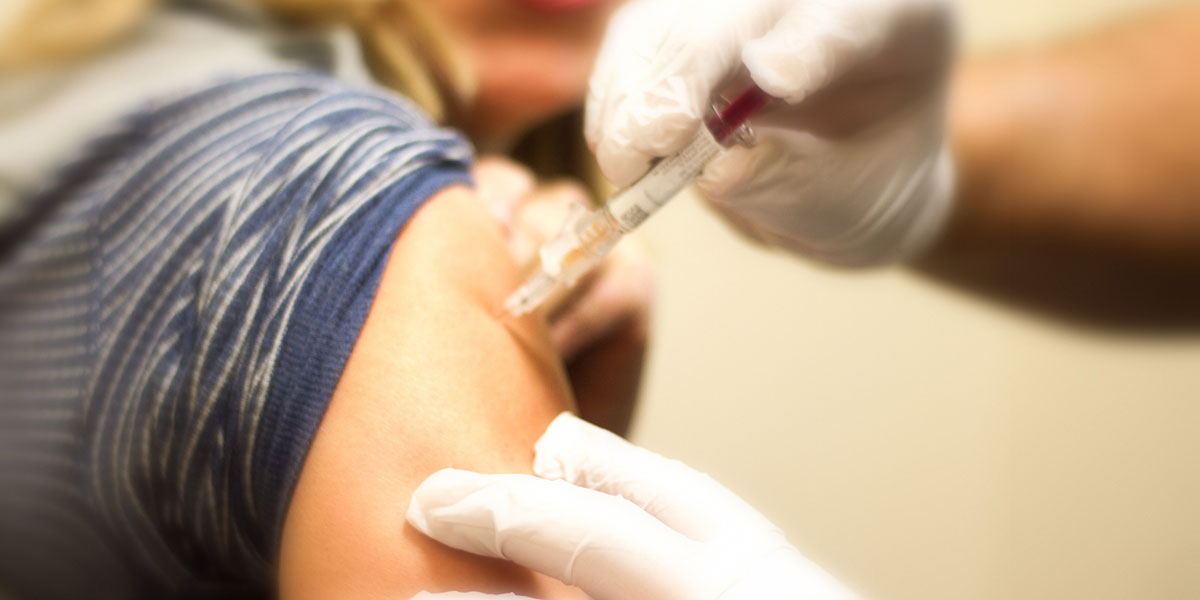
But fast approaching, and under the radar for many Americans, is the upcoming flu season. That means it’s time—especially for cancer patients, their caregivers and families—to keep wearing masks, practice social distancing and get a flu vaccine to protect themselves and others from a potentially dangerous illness that requires constant vigilance.
“Because of COVID-19, some people may not care about the flu this year,” says Mashiul Chowdhury, MD, Infectious Disease Program Specialist at Cancer Treatment Centers of America® (CTCA). “Everything we see and read and hear about is COVID-19. We make every effort to educate people and keep track of the number of coronaviruses cases. We don’t do that for the flu virus. We aren’t as aware as we should be. But every year, up to a half-million people die worldwide from the normal flu—every year. Here in the United States, we lose more than 25,000 people—every single year.”
Cancer patients, especially, should get talk to their doctors about getting vaccinated and urge those with whom they come into regular contact to do the same. Many cancer patients have compromised immune systems from treatments, such as chemotherapy or radiation therapy. Some cancers, such as lymphomas or leukemia, may damage immune cells or impede the body’s ability to produce healthy cells, making them further vulnerable to disease.
Cancer patients who get the flu may experience more severe symptoms than others. “A person who is not immunocompromised may get the flu and eventually recover rather easily, but for cancer patients, the flu may result in very serious complications,” Dr. Chowdhury says. “We need to make sure they get their flu shot.”
COVID-19 and the flu
One positive byproduct of today’s pandemic is that the same healthy hygiene habits many people have adopted to protect themselves from COVID-19 are also necessary to reduce the risk of influenza.
“My prediction and my hope is that because of all the measures we have been taking to prevent the spread of COVID-19—hand hygiene, social distancing, masking and staying home if you have symptoms—we may see less flu than in previous years,” Dr. Chowdhury says. “Social behavior and social responsibility are the steps we should take to avoid any infection.”
COVID-19 and influenza are both considered respiratory viruses and share many of the same symptoms: fever, cough, runny nose, sore throat and myalgia (muscle aches). They are also transmitted in similar ways: through aerosol droplets we exhale and by touch. But the virus that causes COVID-19 and the virus that causes the flu are different in many ways. For instance:
- COVID-19 is more likely to affect older adults, but the flu may affect more children and younger adults. In fact, Dr. Chowdhury says, children are more likely to have severe symptoms or die from the flu than from COVID-19.
- COVID-19 is often a slow-developing illness that may come on gradually before symptoms become suddenly worse, and it may last several weeks or months. The flu usually comes and goes more quickly, often in a week or so.
- COVID-19 patients are likely to experience a loss of taste and smell, a symptom not usually associated with the flu.
Despite the differences, the common symptoms may make a diagnosis more complicated, potentially delaying treatments. “It is extremely important that whenever someone has symptoms, we make sure we are detecting the right virus,” Dr. Chowdhury says.
Still uncertain is how the two viruses may interact in the human body. Can someone get both viruses? Are people who had one virus more susceptible to the other? “These and other questions about the two viruses we hope will get answered soon,” Dr. Chowdhury says. “COVID-19 is making the landscape very complicated.”
One thing that is certain: Because each illness is caused by a different virus, a flu vaccine will not protect you from COVID-19.
The sooner the better
When should you get vaccinated? As soon as possible, Dr. Chowdhury says. The vaccine will last through the flu season and may protect you for up to a year.
Who should get vaccinated? Just about everybody. The U.S. Centers for Disease Control and Prevention recommends most people older than six months, even most cancer patients, should get a flu vaccine. Talk to your doctor if you have allergies to the flu shot’s ingredients, including eggs, which are used to produce the vaccine.
“The reason I am advocating the vaccine and social behavior is that we are entering a season when we are very likely going to combat both a potential flu epidemic and the COVID-19 pandemic,” Dr. Chowdhury says. “People may get excited about news about vaccines and treatment strategies, but what we know personal responsibility and social behavior are more effective than vaccines. We are blessed to have these strategies. Keep doing the good work. If we do that, we may have fewer cases, fewer hospitalizations and fewer fatalities.”
What’s the difference?
As the COVID-19 spread from its purported origins in Wuhan, China, last year, it evolved from an epidemic to a pandemic. What’s the difference?
Epidemic is the surge of a disease in a single country or region of a country.
Pandemic develops when that disease spreads to multiple countries.
Endemic is the term used to describe when a disease or condition is common to a specific population or region. Endemic may also be used to describe something other than an illness, such as an indigenous plant or animal.



